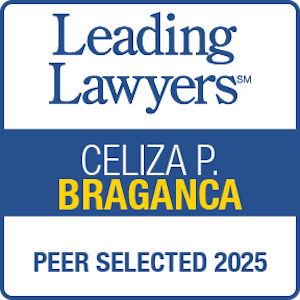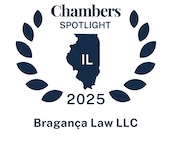- Free Strategy Session: (847) 906-3460 Tap Here to Call Us
SEC Proposal for Disclosure of Securities Borrowing & Lending – It is About Time!

Short selling is selling a share of stock that you do not own. In order to engage in a short sale (with a few exceptions), a short seller is required to locate and borrow a share of stock before it engages in a short sale. Short selling is an artifice that our securities regulators allow to take place. But it has big fans – the hedge funds that use it to make significant profits by trading in the dark.
Not even the SEC knows the amount of borrowing and lending of securities that takes place right under its nose. The SEC estimates that this market in late 2020 was almost $1.5 trillion. But that is just an estimate because all this borrowing and lending takes place in the shadows. It is stunning that the federal securities regulator would not know the volume of borrowing and lending of securities.
The good news is that the SEC is finally getting around to using authority it was granted over ten years ago by the Dodd-Frank Act, in the wake of the collapse of another virtually unregulated market for credit default swaps. Although the SEC and CFTC were given broad powers to increase transparency in securities and derivatives marketplaces, the SEC has virtually ignored the massive opaque marketplace for borrowing and lending securities, even though AIG, which was a huge contributor to the 2007-2009 financial crisis, was a significant lender of securities.
The SEC Proposal for Disclosure of Borrowing and Lending
Recently the SEC proposed a rule to require the public reporting of securities borrowing and lending transactions. The SEC proposal would require borrowing and lending of securities be reported promptly – within 15 minutes. This would allow regulators to finally have access to information on a timely basis about this enormous market. That information would then have to be made public as soon as practicable, but not later than the next business day. This still provides high-frequency traders – including hedge funds – with plenty of time to profit from an informational advantage. Thus, it does not appear to be overly onerous.
The SEC is certainly not a trailblazer in this area. Since 2015, financial regulators in the European Union have been working on regulations that would require the disclosure of securities & commodities borrowing and lending, repurchase transactions, and margin lending. The SEC is at least seven years behind Europe on this.
Industry Objections to Disclosure
It is not surprising that the hedge fund industry opposes this proposed regulation. Hedge funds complain that this proposed rule requiring the disclosure of more information is likely to reduce overall short selling activity and lead to less efficient price discovery and lower market efficiency. Whether you like short selling or not, it is pretty audacious to argue that publicly disclosing these market transactions would make markets less efficient.
A more reasonable objection is that releasing this information would reveal trading strategies and possibly permit front running. This is undoubtedly true. But why should hedge funds engaging in these kinds of transactions be protected any more than retail traders of stocks and bonds?
Hedge fund trade associations filed comments in opposition to the rule, but seem to acknowledge some form of reporting is going to be required. The Managed Funds Association (a hedge fund interest group) complains about the excessive costs that this kind of reporting will impose on the industry.
Industry Objects to Public Reporting of Individual Borrow / Lend Transactions
The MFA opposes the reporting of individual transactions. Another hedge fund interest group, the Alternative Asset Management Association (AIMA), says the SEC should limit reporting of securities borrowing/lending to the “wholesale market” and leaving out the “retail market.” Reporting only “wholesale market” borrowing/lending means that only bulk transactions between lenders (like pension funds and mutual funds) and broker-dealers (like JP Morgan) would be publicly reported. The industry is fighting to keep the “retail market” transactions between the individual hedge fund and the broker-dealer from being made public.
Industry Objects to 15-Minute Reporting
These industry groups also object to the proposed requirement that any information be reported within 15 minutes. They argue information should be reported to regulators the next day (T+1) because it would be unduly burdensome to report earlier. That is hard to square with the contemporaneous reporting of stock and bond trades. It would be a huge change from the current reporting of short positions – which make up only a part of securities lending/borrowing activity – which are required to be reported by broker-dealers to FINRA just twice a month.
Another objection is that because all the borrowing/lending information could not be reported within 15 minutes the information that is reported would be misleading. (Fidelity Investments Comment). This is something that better reporting systems would be designed to solve.
It is hard to square this with the current reporting scheme. Objectors seem to ignore the extensive securities transaction reporting systems that are already operating. FINRA’s comment cites its extensive experience establishing and maintaining systems to capture and disseminate financial transactions like the securities lending and borrowing transactions the SEC seeks to capture. FINRA specifically mentions it is well-positioned to do the kind of trade-by-trade reporting of securities lending/borrowing transactions required under the proposal because it already operates the Alternative Display Facility, OTC, ATS, TRACE, and other securities transaction reporting systems. It is hard to argue that FINRA lacks the ability to do this kind of reporting of securities borrowing/lending.
In sum, it is audacious for hedge funds to argue that their trading activity should remain private when much of their trading is based on a steady stream of information about other people’s trades, which are almost instantaneously released publicly. This is simply an industry seeking to maintain an unfair advantage for as long as it can.























